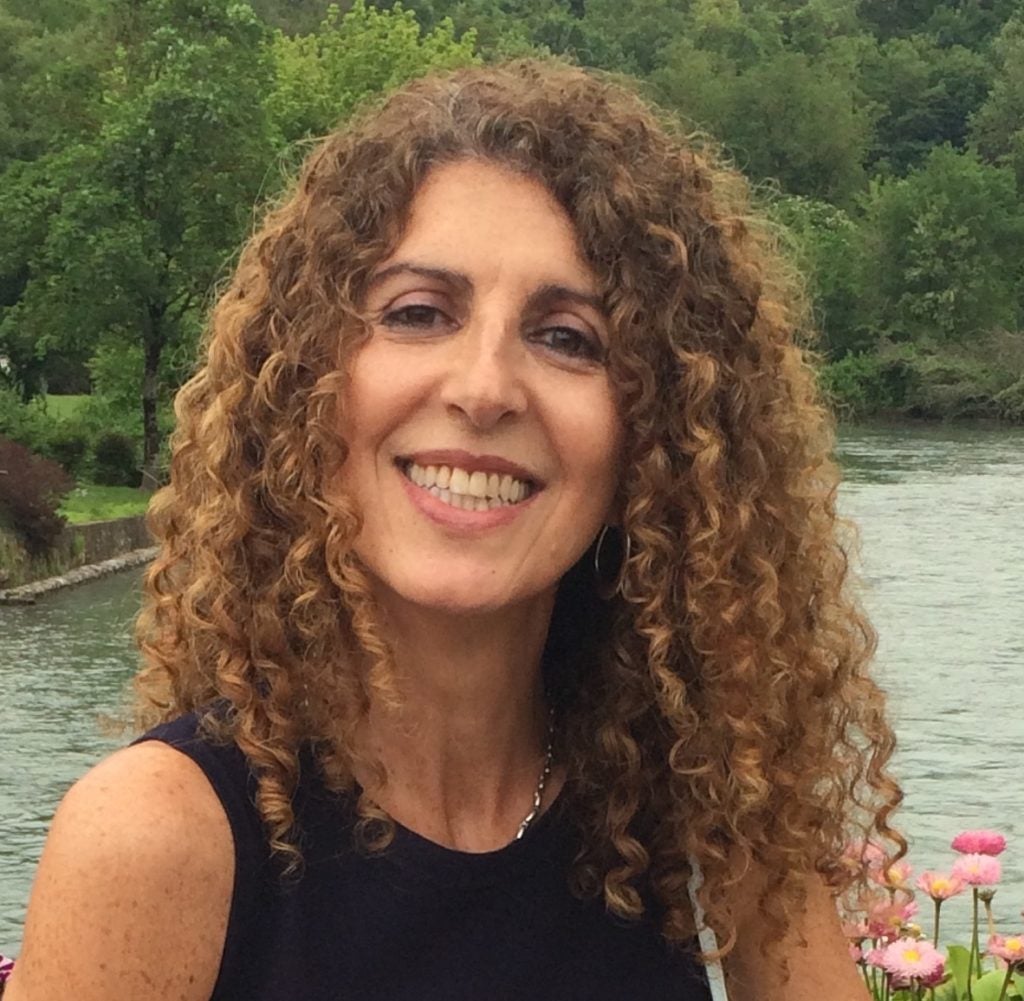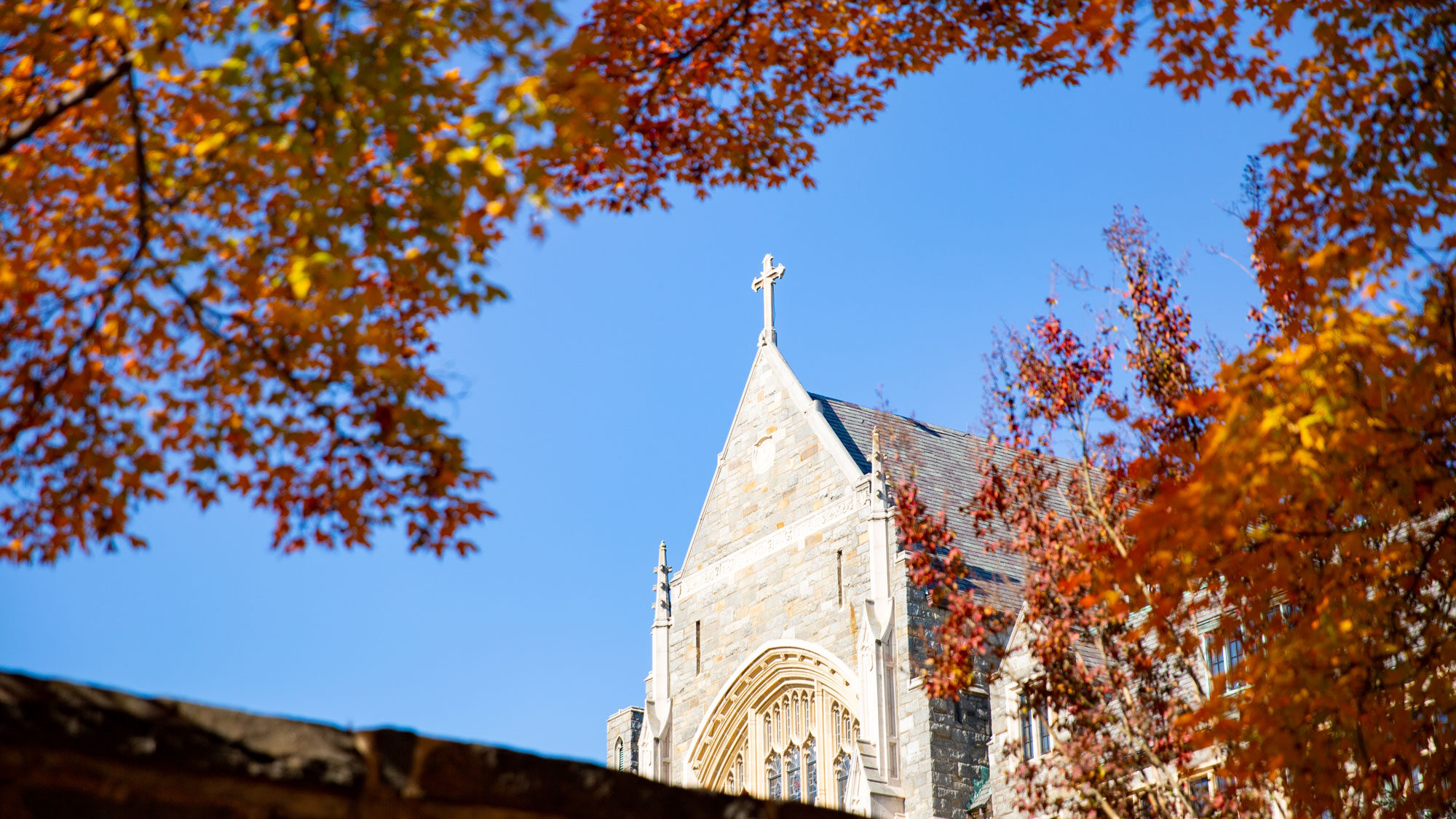Pireddu to lead Georgetown Humanities Initiative
October 1, 2019 – The College is proud to announce that Prof. Nicoletta Pireddu, a professor in the Department of Italian and an expert in Comparative Literature, will be the inaugural director of the Georgetown Humanities Initiative starting January 2020. The Humanities Initiative is a university-wide initiative to help promote and strengthen studies in the humanities. It also aims to support the research and teaching of the university’s humanistic scholars.
Helping the Humanities to Flourish

Nicoletta Pireddu named inaugural director of the Georgetown Humanities Initiative has been at Georgetown for over 20 years, received Georgetown University’s FLL Distinguished Service Award in 2017 and the Dean’s Award for Excellence in Teaching in 2005.
Dean Christopher Celenza comments on the appointment of Prof. Pireddu. “I am delighted that Nicoletta Pireddu, a renowned comparatist and much-admired professor in our department of Italian, has agreed to take on the inaugural Directorship of the Georgetown Humanities Initiative. We have been sustained by the leadership of Vice Dean of Faculty David Edelstein, as well as that of our faculty advisory board. Prof. Pireddu’s leadership will allow us to continue that forward momentum and open up new areas of endeavor that will allow the Humanities to flourish robustly at Georgetown.”
“With its commitment to an integrated education and its vibrant location, Georgetown University is the ideal institution to foster innovative projects in the humanities that can involve and benefit faculty, students, and the wider community,” comments Pireddu. “Georgetown Humanities provides a university-level structure granting more visibility to the research that is already enriching our campus, but also promotes new synergies within the humanities, as well as between the humanities and other disciplines.”
Several Sponsored Projects in the Works
Georgetown Humanities already has several sponsored projects under its purview, including Georgetown University Buddhist and Silk Road Studies Initiative, Global Irish Studies, and the Georgetown Hyperhistory Hub.“Support from the Georgetown Humanities Initiative has been transformative for our efforts,” says Prof. Kathryn de Luna, one of the co-directors of the Hyperhistory Hub; she partners with professors John McNeill, Dagomar Degroot and Timothy Newfield on the project. “This spring we are offering courses and programming that introduce Georgetown undergraduate and graduate students, DC-area faculty, and the broader public to the ways that historians can broaden their archives by responsibly using the data generated by a suite of methods in the historical sciences—everything from ancient DNA to ice cores for historical climate reconstruction, to the isotopes embedded in human and animal teeth. These opportunities also enrich our own research; the four of us faculty who are collaborating on this project fully expect to learn alongside our students.”
Through the projects it funds and the programming it develops, Georgetown Humanities strives to support work that has a deep impact in the academy while also engaging the public by demonstrating the continuing value of the humanities for understanding the challenges and opportunities of the human condition.
“It is an incredible honor for me to contribute to this exciting endeavor, which foregrounds the importance of a humanistic approach to the understanding of our complex and interconnected world.” Pireddu states. “I look forward to working with colleagues and students inside and outside Georgetown to render our university a leading humanities hub.”
